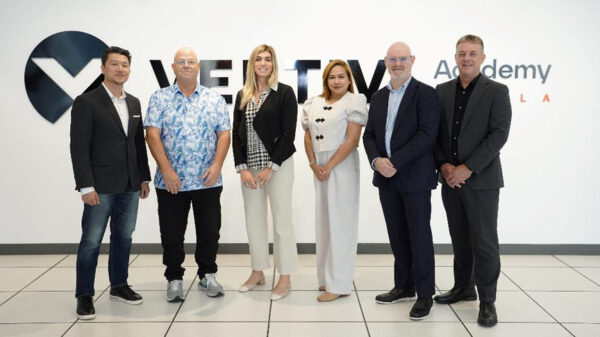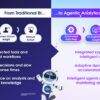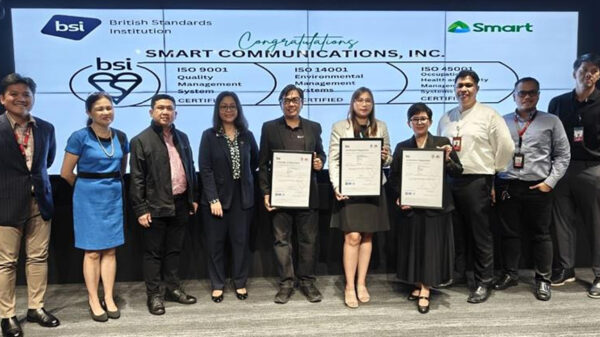According to Tracy Yeo, Zebra Technologies country lead in the Philippines, the top three issues that are hindering the widespread adoption of cloud technology in the Philippines are: fear of security breaches, lack of IT knowledge, and the lack of internet infrastructure in the country.
As it is, “enterprises in the Philippines consider cloud technology to be a powerful tool that can improve business operations and services. In fact, about 30% of the total workload in the country are already in the cloud,” Yeo said. “However, while businesses are open to adopting cloud technology, most of them are wary about the security of the platform. This is especially after several high-profile security breaches that have taken place in recent years. The general perception in the country is that transitioning to the cloud makes users more vulnerable to security breaches.”
Local companies also have a shortage in in-house IT talents who have the expertise in cloud technology to assist their companies with the implementation. “Therefore, they will have to rely on reliable partners who can do a proper job.”
And lastly, “IoT execution requires a strong IT infrastructure to support it. Therefore, local businesses are experiencing difficulties in shifting to the cloud due to the lack of internet infrastructures in the Philippines.”
But Yeo said that there are companies – such as Zebra Technologies – that “has been empowering” businesses to achieve “performance edge.”
In Zebra Technology’s case, in particular, “for the past 50 years, (we have) a wide range of solutions and products including mobile computers, printers, scanners, RFID solutions, locating systems hardware and software, among others, to cater to the varying needs of its end-customers.”
There are also specific solutions to the three issues that – for her – hinder cloud adoption in the country.
To address security worries, she admitted that “while security breaches may sound daunting, this can be overcome by choosing the right products and solutions from a company that takes topic seriously. For instance, Zebra has built its printers on a secure foundation of Print DNA — a suite of tools that carefully control each connection and data exchange to safeguard information and grant access to only authorized users. Featuring technology like PrintSecure, companies will be able to encrypt connections, allow only permitted access and regularly update their thermal printers to address new threats. They can also leverage the data that flows through their thermal printers for decisive insight.”
Meanwhile, LifeGuard for Android is Zebra Technologies’ software security solution that “serves to extend the lifecycle of Zebra Android enterprise mobile computers”. Consumer OS security support typically ends after 36 months, short of the more-than-five-years of service life that businesses require. “LifeGuard adds years of OS security support after consumer support stops to match the enterprise hardware lifecycle, helping business to significantly lower their total cost of ownership. With LifeGuard, businesses will receive extended security support, predictable periodic security updates and legacy OS security support when transitioning to a newer OS. Frequent updates will enhance their security and LifeGuard makes them easy to install at their discretion, either locally, or remotely via Enterprise Mobility Management (EMM).”
And to providing the right IT expertise, Yeo said that companies can “easily overcome (this) by working with a dependable and trusted partner,” particularly since “most companies in the Philippines may lack the in-house IT expertise to help their companies to embark on the IoT journey.”
With over 10,000 partners across 100 countries, Zebra Technologies works with a “worldwide network of channel partners to develop valuable industry-tailored solutions that are regionally accessible for its end-customers. Zebra’s channel partners play critical roles from developing new technologies to implementing them for our end-customers. Through these partnerships, Zebra enables enterprises to push beyond industry expectations and achieve a competitive edge.”
Yeo said that the company is “also committed to innovation by constantly developing products and solutions with the end-customer in mind. In terms of R&D, Zebra has come up with various advanced solutions including: Radio Frequency ID (RFID); MotionWorks (a real-time locationing solution that can automatically sense the location of assets and inventory); and Savanna (a data intelligence platform that combines the Internet of Things/IoT end-point connectivity, configuration management, data transport, data storage, analytics and machine learning into one platform).
Today, Zebra Technologies has an impressive line-up of end-to-end products and solutions and it has over 4,400 U.S. and international patents issued and pending. Zebra is constantly working to heighten investment in disruptive technologies, which is bolstered by its recent acquisitions of Xplore Technologies and Temptime Corporation.
With these, in the end, Yeo hopes for Zebra Technologies to help the continuing push for “cloudification” in the Philippines.













































































































